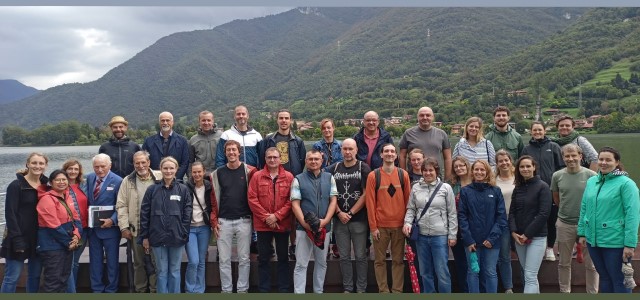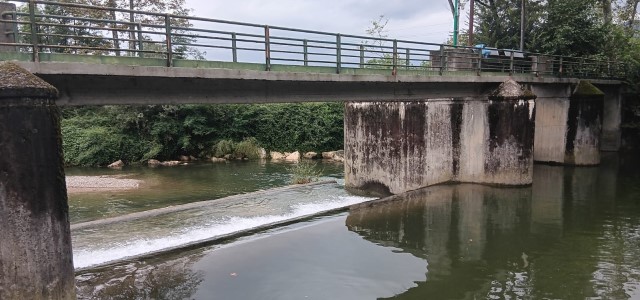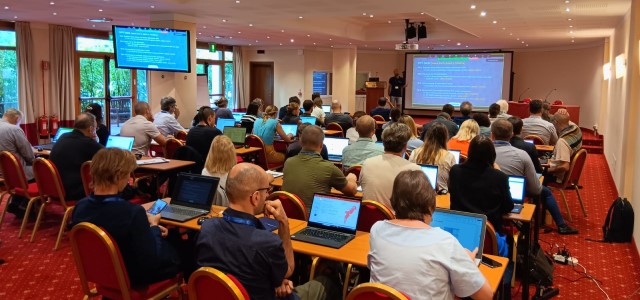At the outset of the meeting, Prof. Dr. Martin Volk used the opportunity to welcome all the project partners, as well as to share the plan for the following week which featured a well-balanced combination of activities, including plenary presentations on work package progress, interactive World Cafes, and open space sessions. Dr. Federica Monaco, representing the host institution, also shared a heartfelt welcome note.
During the first day, the status and progress of work packages (WPs), from WP1 to WP4 has been shared from the side of the WP leads. It started with the presentation of the WP1 which is dedicated to case studies and harmonized multi-actor approach. The status of engagement activities, draft paper on meaningful engagement, and the MARG workshop situation were presented. In the scope of the WP2, it was presented what has been prepared in the scope of the measures and indicators. The presentation of the data retrieval and harmonization, in the scope of the WP3 was also held as well as the progress of WP4 dedicated to the integrated assessment of the Natural Small Water Retention Measures (NSWRM). It was then followed by the case study presentations and the open space session.

On the second day, the project partners could hear more about the progress and plans for further implementation of activities in the scope of optimization of the NSWRM. Colleagues also shared the status of the WP6 dedicated to synthesis and policy recommendations where they presented the current developments of deliverables D6.2 and D6.3. It was followed by the joint presentation of case study leads and the modelers. In the afternoon, three different World Café discussions were held on the topic of how to present and discuss modeling results, the project synthesis - guidelines for optimal implementation of NSWRM, and the WOCAT Carbon Benefit Assessment. Further on, the open sessions were held, and the day ended with a tour of a beautiful old part of Bergamo City.
During day three, the morning session kicked off with the presentations of the WP7 which is focused on dissemination, communication, and the Learning Environment (OPTAIN educational platform in development) where participants could see and discuss the online version of the Learning Environment platform, of the Summer School and its outcomes, as well as the plan in the scope of further communication activities. Within the presentation of the WP8, the plans in the scope of the next periodic report were presented.

The participants also had a chance to see the presentation about a partner Horizon project, the WATERAGRI, which was given by Prof. Dr. Rolf Larsson. Those presentations were followed by the continuation of presentations from the side of case study leads and case study modelers. The afternoon was dedicated to the World Cafe on OPTAIN’s impact and focus on specific target groups, on the Learning Environment, and on the status and challenge sof Task 4.5 which is dedicated to the socio-economic assessment. The program followed with the meeting of the WP leads who discussed the project plans for the next period.
On the last day of the General Assembly meeting, the partners were delighted to have the opportunity to visit Endine Lake where they had a chance to meet local stakeholders and hear more about the challenges they tackle with. Afterwards, they shortly visited Gorlago and stopped at the irrigation water diversion point. In the afternoon they had the pleasure of visiting the Colleoni Castle at Cascina Malpaga where they finalized their field visit.
